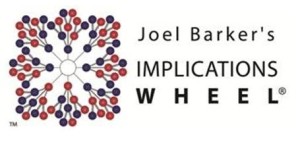In the past few months, I’ve read at least six articles or blogs about rabbis and the contemporary rabbinate. (Just search sites like eJewishPhilanthropy, The Jewish Week, the JTA and the Jewish Daily Forward for a sampling of results.) Any rabbi will tell you that there’s structural change occurring and the media now seems to have picked up this story. Some of the stories suggest new roles that rabbis are fulfilling, others are about gender and the rabbinate, or prognostications about the future of the rabbinate and the rabbinical seminaries’ challenge in keeping up with what they perceive as new skills that rabbis require.
(Disclaimer: I’ve written about the rabbinate over the years as well in publications like Tomorrow’s Synagogue Today. Creating Vibrant Centers of Jewish Life and “The Rabbi as Moreh Derekh Chayim: Reconceptualizing Today’s Rabbinate”. But why so many articles in such a short time?
Rabbis are experiencing significant role ambiguity and the 20th Century paradigm of what defines a rabbi is clearly inadequate for this century. A few examples will suffice:
- Many states no longer require ordained clergy to perform weddings. A family member or friend can get a permit for a day to perform a specific wedding, for a specific couple.
- Also, non-ordained ritual emcees offer to guide individuals through other rites of passage, like bar and bat mitzvah.
- Independent minyanim that do not have rabbis on their payroll have sprouted over the past decade and there are a small number of online synagogues-some completely digital, others as a complement to a bricks and mortar facility.
- Jewish learning is available 24/7online, and in new physical settings like Limmud.
Rabbis used to have primary or heavy involvement in the examples above but now, much less so.
And it isn’t just that functions are changing. Relationships are changing as well. In speaking with colleagues, they sense that they are increasingly being treated more as employees and less as individuals with a sacred profession. As one colleague wryly commented, he felt that “evaluations” had become “devaluations.”
This lack of role clarity is a symptom of a paradigm change. As renowned futurist, Joel Barker, says: “When a paradigm shifts, everyone goes back to zero. Your past success guarantees nothing in your future.” And all of these conversations about rabbis’ roles certainly have the feel of “going back to zero,” that is, accepting that the assumptions that undergird last centuries’ rabbinate will not support today’s rabbinate.
I believe that rabbis have significant roles to play. Some will be the same as the last generation of rabbis, and others haven’t even yet been imagined. But I’d like to hear your thoughts about the unique roles that rabbis can play. By unique, I mean what is it by virtue of their training that they alone can do, or that they can do with greater ability than others with Judaic knowledge and experience? All are invited to respectfully weigh in and thanks!
